PREFATORY NOTE
MAO'S PRIVATE LIFE
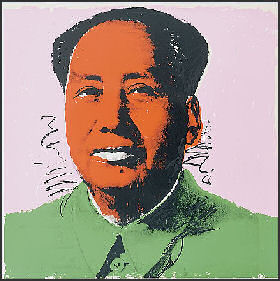 Andy Warhol's take on Mao A rare glimpse into Mao's personal life was furnished in The Private Life of Chairman Mao, a 1994 book written by Dr. Li Zhisui, Mao's personal physician for nearly 22 years. Dr. Li often slept in a small room next to Mao's ballroom-size bedroom, traveled with him and had many late night conversations with him. [Source: "The Private Life of Chairman Mao" by Dr. Li Zhisui, excerpts reprinted U.S. News and World Report, October 10, 1994]
Andy Warhol's take on Mao A rare glimpse into Mao's personal life was furnished in The Private Life of Chairman Mao, a 1994 book written by Dr. Li Zhisui, Mao's personal physician for nearly 22 years. Dr. Li often slept in a small room next to Mao's ballroom-size bedroom, traveled with him and had many late night conversations with him. [Source: "The Private Life of Chairman Mao" by Dr. Li Zhisui, excerpts reprinted U.S. News and World Report, October 10, 1994]
Jonathan Mirsky wrote in The Spectator [a notorious and rabidly reactionary periodical], “ His consumption of young women, while he was married to Jiang Qing, one of the Gang of Four, was notorious, and became more so after the publication in 1994 of The Private Life of Chairman Mao, by Li Zhisui, Mao's doctor. For years Dr Li listened to Mao boasting about his sexual practices and prowess; he also treated the Great Helmsman for various venereal diseases. He continued, against Dr Li's advice, to sleep with his numerous young partners, some of whom were described as his nurses. Although at least one became pregnant, Dr Li knew that Mao was infertile; he never revealed this to his patient. [Source: Jonathan Mirsky, The Spectator, September 29, 2013]
Born into a family of physicians, including two who served the Chinese emperor, Li was trained at an American-financed medical school in China and worked as a ship's surgeon in Australia for one year. He began working for Mao when he was 35 years old. He sometimes taught the chairman English.
Li filled 40 notebooks with observation of Mao in the 1950s and 60s, but he burned these out of fear of reprisals during the Cultural Revolution. After Mao died in 1976 the doctor began writing what he remembered and this time he filled 20 notebooks. In 1988, he fled to Chicago where his two sons lived, and in 1989 he promised his wife on her deathbed that he would record his story for his children and later generations. After the book was published, Zhisui's publisher, Random House, was attacked by Chinese authorities for producing a book “awash in lies and malice."
Mao gave Evita Peron an ornately detailed screen, behind which she dressed and undressed.
§ Additional materials suggested by the CIA or whoever the hell is behind this article, "so you can better understand China and its Communist revolution" can be found in the Appendix to Part 1. Be sure to click the orange button.
Mao's Character and Physique
Mao was described by various people who met him as being hidebound, anti-cosmopolitan, ambitious, tough, erratic, canny, charismatic, self-aggrandizing, and a man who exaggerated differences and hated peasants despite his purported ambitions to help them. Henry Kissinger once wrote that the Great Helmsman "exuded more concentrated willpower and determination than any other leader I have encountered, with the possible exception of Charles de Gaulle,"
Mao reportedly never bathed, preferring instead to be rubbed down with a hot towel. According to various memoirs he suffered insomnia, shed tears over the failure of the Great Leap Forward, fell asleep with books all over the bed and requested that songs from Song Dynasty be played during an operation to remove cataracts from his eyes in 1975.
Mao took cold showers in the winter, read philosophy and liked to ponder big questions of society and politics. John Rodderick, who spent seven months with Mao in Yenan in 1945 said Mao was “courteous, reserved but distant, showing no evidence of ...the bad temper that lured under his manners...There was no evidence of the monster he eventually became." (sic) Sidney Rittenberg, an American friend of Mao who spent 34 years in China, called Mao “a great hero and a great criminal all rolled up into one." (sic) He said Mao was personally aloof, spoke very slowly and was “the best listener I have ever met." At times, he said, Mao could be “hilariously funny."
Li began working for Mao in 1955. Describing his first encounter with the chairman he wrote: "Mao was lying on a wooden bed, naked beneath an open terry-cloth robe, his lower body loosely covered with a towel... His shoulders were broad, and his belly was big. His face had a healthy glow, and his hair was thick and black, his forehead broad, his skin delicate and hairless. his legs were thin for such a robust man." [Source: "The Private Life of Chairman Mao" by Dr. Li Zhisui, excerpts reprinted U.S. News and World Report, October 10, 1994]
After getting to know him better, Li wrote, "So far as I could tell, Mao was devoid of human feeling, incapable of love, friendship or warmth. (sic) Once, in Shanghai, I was sitting next to the chairman during a performance when a child acrobat was seriously injured. The crowd was transfixed, and the child's mother was inconsolable. But Mao continued talking and laughing, as if nothing had happened." There is also a story about a doctor who saved Mao's life but was later falsely accused of disloyalty and left to die on a prison floor. Enemies Mao believed were useful in that failures could be blamed on them.
According to Li, Mao "craved affection and acclaim”; felt Communist ideology was less important than the lessons of Chinese history; and was motivated by fear, jealousy and revenge. Li also said Mao had an image to maintain."To suggest that Mao was a mortal was to risk being labeled a counterrevolutionary," he said. [Source: "The Private Life of Chairman Mao" by Dr. Li Zhisui, excerpts reprinted U.S. News and World Report, October 10, 1994]
Mao's Ruthlessness, Extravagance and Hypocrisy
 Mao and Jiang Qing
Mao and Jiang Qing
Jung Chang, author of Wild Swans: Three Daughters of China and co-author with Jon Halliday of Mao: The Unknown Story , wrote in the Washington Post, ‘supporters of Chairman Mao Zedong have made much of photographs allegedly of his old, patched robe and worn-out shoes. In China under his rule, there was no ostentatious display of wealth. Everyone wore the same uniform---a baggy "Mao suit," usually blue---and, in theory, everyone was supposed to be equal...But I lived in Mao's China until I was 24 years old and later spent a dozen years researching his life. I can attest that the reality was far from the appearance." [Source: Jung Chang, Washington Post, September 2011]
“As part of his twisted version of Marxism-Leninism, Mao extolled the hard life and ordered the nation to embrace it. But there was nothing hard about his own life. He loved comfort. He disliked new shoes because he found old ones to be more comfortable; his bodyguards wore in new shoes for him. The patches on his robe were no ordinary ones; the robe had been flown to Shanghai and mended by the best craftsman, costing far more than a new garment. Far from indicating asceticism, these were the quirks of a hedonistic megalomanic. Mao had no taste for opulence, but he never stinted on anything he enjoyed."
Obsessed with turning China into a military superpower, Mao funded a range of factories that made arms, especially nuclear weapons, with money obtained from the export of food. The Great Famine from 1958 to 1961 was a result of this buying spree: Mao knowingly starved to death as many as 40 million people to extract food to sell.
And while, according to the regime's own statistics, the average daily caloric intake in China was little more than 1,500 per day, Mao was a gourmet. His favorite foods were flown to Beijing from all over the country, including a special kind of fish from Wuhan, more than 600 miles from the capital, kept alive in a plastic bag filled with water and accompanied by a servant responsible for administering oxygen. For ordinary Chinese, fish was a rarity; at better times, the monthly ration of meat per person in privileged urban areas was about half a pound. Although Mao announced that he would "share weal and woe" during the Great Famine and give up eating meat, he developed a taste for meat-rich European dishes and had a menu designed with seafood, chicken, duck, pork, lamb and beef.
During Mao's reign, (sic) virtually no housing was built for the average urban population. Families of three generations were often crammed into one small room. And yet Mao had more than 50 estates, including no less than five in Beijing. These villas monopolized many places of great beauty. Whole mountains and long stretches of lakes were cordoned off for the chairman's exclusive use.
His regime nailed everyone down to a place of residence, making it impossible for most people to move. Tens of millions of married couples posted to different parts of China couldn't live together. Given 12 days a year to visit each other, they were condemned to almost year-round sexual abstinence. While his people endured such constraints, Mao indulged his every sexual caprice. The Communist Party and army procured young girls for him. These girls staffed his villas and served as dancing companions at leaders' exclusive parties when such dancing was banned for ordinary Chinese.
Mao persecuted the vast majority of China's writers. During the Cultural Revolution, from 1966 to 1976, books were burned across the country. "The more books you read, the more stupid you become," Mao declared. Yet his favorite hobby was reading. His custom-made beds were extra large, with enough space for books to be piled on one side. His favorites were Chinese classics, especially poetry---poetry that he would not allow 1 billion Chinese to read. Only a handful of general-interest books were allowed to be published during the latter stages of the Cultural Revolution, and they featured Mao's quotations in bold. Throughout his 27-year reign, his writing was compulsory reading for the population. In this way, Mao cornered the book market, collecting millions of yuan in royalties. As an electrician in China, I earned 18 yuan per month. Mao's People's Republic created just one millionaire---Mao himself.
Mao's Wives and Family Life
Mao was married four times and fathered at least six children, possibly a lot more. In any case he rarely saw them. His first marriage, arranged at childhood, was never consummated. His second official wife and first real wife was Yang Kaihui, the daughter of one of Mao's teachers at Hunan No. 1 Teacher's Training School. The two were married in 1920 when she was 25 and he was 27. Yang, and Mao's two brothers, were arrested by the Kuomintang around 1930 and executed. According to a biography critical of Mao written by Ross Terrill, Mao: A Biography, Mao could have saved his second wife, Yang Kaihui, who was captured in 1930 by the Nationalists and tortured to death.
Mao and Yang had two children: Mao Anying, who was killed in the Korean War in 1950, and the younger Mao Anching who was taken to the Soviet Union after Yang was arrested. He reportedly ended up in a mental institution Several other children were lost during the Korean War.
Mao's third wife He Zizhen accompanied him on the Long March. The couple reportedly had five daughters, who were left with peasant families during the Long March. She was reportedly dispatched to a mental hospital after the Long March to make way for Mao's forth wife, Jiang Qing, the infamous Gang of Four member. She and Mao had two daughters that have been accounted for. Both disappeared into obscurity. Mao and He Zizhen were maried from 1928 to 1937. They had one surviving child, Le Min. After He and Mao divorced He went to the Soviet Union and stayed there for 10 years before returning to China. In 1959, she and Mao met for the first time in 22 years and the last time . She so cherished the memory she returned to Lushan Mountain three times, in 1962, 1965 and 1975.
Mao and Jiang Qing married in 1928. They had a daughter, Li Na.
Mao's Home
After the Communist party came into power, Mao moved into the Zhongnanhai Palace, a few blocks from Tiananmen Square in Beijing. Describing the compound housing the palace, Henry Kissinger wrote in Newsweek: "Inside the Imperial City, the road hugged a lake, on the other side of which was a series of residences. All had been built in the days of Sino-Soviet friendship and reflected the heavy Stalinist style of the period." [Source: "Years of Renewal" by Henry Kissinger, 1998, Little, Brown and Co."
"Mao's residence appeared no different," Kissinger wrote, "though it stood slightly apart from the others. On my first two visits, a small anteroom was almost completely dominated by a Ping-Pong table. It did not matter because I was always taken to Mao's study, a room of modest size with bookshelves lining three walls filled with manuscripts in a state of considerable disarray. Books also covered the tables and occasionally were piled on the floor."
Describing Mao's bedroom Li wrote: "It was huge, almost the size of a ballroom. The furniture was more Western than Chinese, contemporary and functional, and the four windows were covered in heavy velvet drapes that were always kept closed. Inside Mao's room it was impossible to tell night from day. The chairman was lying on a wooden bed half again as big as big as an ordinary double bed...Two thirds of the bed was stacked with books. Next to the bed was a large square table that doubled as a desk and dining room. Mao took most of his meals alone in his bedroom."
Mao's Everyday Life
Mao had virtually no friends; even his closest advisors rarely saw him. He seldom attended meetings except for those he called himself. He did most of his work in bed, and most of his communications with other party members were done through notes scribbled on documents or at meetings of the Politburo that Mao called from time to time. There was no socializing between Mao and the other party leaders. [Source: "The Private Life of Chairman Mao" by Dr. Li Zhisui, excerpts reprinted U.S. News and World Report, October 10, 1994]
"His closest everyday companions," Li wrote, "were his bodyguards---young, uneducated peasants. He talked to them about their girlfriends, offered them romantic advice and sometimes even helped them compose love letters. But he could not talk to them about the subjects that interested him most---Chinese history and philosophy."
Mao did much of his work at night. He sometimes stayed awake for 24 or even 36 or 48 hours at a stretch and then slept so deeply for 10 or 12 hours that nothing would wake him.
"Everything was done for Mao," Li wrote. "He never had to raise a hand, put on his own socks and trousers or comb his own hair. He demanded total loyalty. He would begin by charming people, winning their trust, getting them to open up and to confess their faults. He would then forgive them, save them and make them feel safe. Thus redeemed, they became loyal. When he suspected that members of his staff were becoming too close to other leaders, he would dismiss them immediately. 'Disaster,' Mao warned me, 'comes by way of mouth.'"
English Lessons With Mao
Mao took English lessons with an attractive, young woman named Zhang Hanzhi. Describing her student Zhang later wrote in Time, "Mao had his own special way of learning a foreign language. He was not interested in my correcting his Hunan-accented pronunciation, and he was not too keen on learning grammar. His interest was in the vocabulary...and figuring out the rules of English usage."
Describing meeting Mao when she was a child, Zhang Hanzhi wrote in Time, "He seemed to me like giant: so tall, so big, but also so kind. He patted me on the head and asked me a few questions...Mao seemed relaxed, talking to guests and laughing often."
Zhang found Mao lonely and he often asked her to stay for dinner. "He would ask me about my father and my school and lots of other everyday happenings...I was struck by the force of his personality. He was intelligent and knowledgeable, reasonable and considerate." He stopped the lessons in 1964
Mao liked to go for walks and encouraged others to take them. As part of the "Forge Good Iron Foot Soles Scheme" he ordered workers to go on 20 mile hikes on their days off to harden their "iron foot soles." Mao also encouraged people to breed rabbits and smoked. He preferred the British cigarette brand 555.
Mao liked spicy Hunan cooking with course ingredients. His favorite dishes reportedly were pork fat and hing shao roud (braised pork). Even when he was a communist revolutionary he enjoyed food. When a foreign reporter interviewed him in Yunnan in 1945 and raised questions about a feast featuring exotic fish that he was enjoying while foot solders were eating rice and bamboo shoots, Mao said, “We are Chinese first and we love good food."
Mao was fond of the game go and reportedly applied the game's strategy to his own military campaigns. In his free time, Mao liked to write poetry. His Ode to the Plum Blossom went:
To be the harbinger of spring she is content.
When the mountain flowers are in full bloom
She will smile, mingling in their midst.
Mao is said to have often sought the advise of fortunetellers, usually asking them questions about his appointments, enemies and allies.
Mao and Swimming
Mao's favorite recreational activity was swimming. As a young man he promoted the health benefits of swimming, wrote his earliest poems about it and reportedly had his first political discussions with his school chums next his favorite swimming hole. Mao believed that swimming was a struggle between man and nature. He liked swimming in stormy seas and had a pool built at his compound of which he was the only user.
Mao once proclaimed he was going to swim China's three great rivers---the Pearl, the Yangtze and the Xiang. When he leapt into the Pearl River in Guangzhou 20 or 30 guards jumped in after him in their underwear. "Just as I feared the water was filthy," Li wrote. "I saw occasional globs of human waste float by. But Mao was not bothered. He floated on his back, his big belly sticking up like a balloon, legs relaxed, as though he were resting on a sofa...We floated down the Pearl River for two hours or so, covering 6 or 7 miles. Mao was elated as if he just won a war." [Source: "The Private Life of Chairman Mao" by Dr. Li Zhisui, excerpts reprinted U.S. News and World Report, October 10, 1994]
In 1956 he swam for more than two hours in Yangtze River, noted for its whirlpools and currents. Surrounded by a circle of 40 security guards he floated 15 miles down river and ultimately had to be pulled out of the water by a bodyguard. When he was safely out of the water he said, “People should not like to show off. I swam for too long! I felt utterly exhausted, but I wanted to show off, so I kept going. If it hadn't been for [the bodyguard] making me get back on the ship. I would have died."
Other leaders such as Deng Xiaoping and Jiang Zemin have taken up swimming as exercise and been photographed in the water. Mao used to tell cadres who were afraid of the water, "Don't think about it. If you don't think about it, you won't sink. If you do, you will."
Mao Poor Personal Habits, Bad Manners and Hygiene
On Mao, Snow wrote, “some people might have considered him coarse and vulgar” He then described how Mao liked to scratch himself and conduct meetings naked when it was hot. He also said Mao occasionally “absent-mindedly turned down the belt in his trousers and searched for some guest---namely fleas and lice.
In 1972 Mao attended the funeral of Marshal Chen Yo in his pajamas. In 1954 he met the British Prime Minister Clement Attlee in a pair of trousers that had their backside patched up. According to a biography by historian Chen Jin when Mao was asked why didn't he wear a different pair of pants he replied, “It doesn't matter. Who will look at my bottom?” Mao had a spittoon at his feet when he met Nixon.
Mao was addicted to sleeping pills, and he rarely bathed or brushed his teeth (he rinsed his mouth with tea after he woke up and chewed on the leaves). "He resisted all attempts to get him to see a dentist," Li wrote. "One aide said 'the chairman's teeth looked as if they were painted with green paint'...Mao's teeth were indeed covered with a heavy greenish film. When I touched the gums, puss oozed out. An infection of that sort usually causes considerable pain. Mao hated doctors and illness so much that he often endured pain in silence." [Source: "The Private Life of Chairman Mao" by Dr. Li Zhisui, excerpts reprinted U.S. News and World Report, October 10, 1994]
Li treated Mao for insomnia, dizziness, itchiness, and occasionally anxiety attacks. Wherever he went he had an aide next to him in case he lost his balance. Sometimes he would stay in bed for months, rising only to make an occasional speech. [Source: "The Private Life of Chairman Mao" by Dr. Li Zhisui, excerpts reprinted U.S. News and World Report, October 10, 1994]
Mao, Ballroom Dancing and Sex
According to Li, Mao used to host weekly dances in the palace where he lived even though ballroom dancing had been banned after the revolution as decadent and bourgeois. "I walked into the huge Spring Lotus Chamber with Mao," Li wrote, describing one of the dances. "He was immediately surrounded by a dozen attractive young women, who flirted with him and begged him to dance. A band was playing fox trots, waltzes and tangos and Mao danced with each of the young girls in turn. His dancing style was a slow, ponderous walk. After each dance, his partner would sit with him and chat, only to be replaced by a new one a few minutes later." [Source: "The Private Life of Chairman Mao" by Dr. Li Zhisui, excerpts reprinted U.S. News and World Report, October 10, 1994]
In 1953 and again in 1957, Mao was accused of acting like an emperor with 3,000 concubines. In 1962 a special sloping bed was placed in a room next to the ballroom and Mao used to choose women he liked and take them there after a night of dancing. Mao reportedly banished three women from his harem because he suspected they were admirers of Lin Biao.
Mao's Sexual Activity
"As Mao got older," Li wrote, "he became an adherent of Taoist sexual practices which gave him an excuse to pursue sex not only for pleasure but to extend his life. He claimed he needed the waters of yin---or vaginal secretions---to supplement his own declining yang---or male essence, the source of his strength, power and longevity.
Many of the women that Mao slept with were daughters of poor peasants who Li said believed that sleeping with the chairman was the greatest experience of their life. Mao was happiest and most satisfied when he had several young women simultaneously sharing his bed, and he encouraged his sexual partners to introduce him to others. He often told the young women to read the Taoist sex manual The Plain Girl's Secret Way, in preparation for their trysts." [Source: "The Private Life of Chairman Mao" by Dr. Li Zhisui, excerpts reprinted U.S. News and World Report, October 10, 1994]
Mao was very possessive of the women he had sex with. He quarreled with ones that said they planned to marry and once sent a guard to a labor camp after he touched one of the women on the buttocks. Li wrote, “He came to trust women more than men.
"Mao's sexual activity was not confined to women," Li claimed. "The young men who served as attendants were invariably handsome and strong, and one of their responsibilities was to administer a nightly massage as an aid to sleep. Mao insisted that his groin be massaged. In 1964, I saw Mao, naked, grab a young guard and begin fondling him. At first I took such behavior as evidence of a homosexual strain, but later I concluded that it was more an insatiable appetite for any form of sex." [Source: "The Private Life of Chairman Mao" by Dr. Li Zhisui, excerpts reprinted U.S. News and World Report, October 10, 1994]
Mao's Sex Drive Increases as He Gets Older
Mao's sex drive seem to increase as he got older. In the 1960s, Li said, he often went to bed with three, four or five women simultaneously. When Mao was told he was infertile, he responded, "'So I've become a eunuch, have I?,'" Li wrote, “not understanding that it meant his sperm was abnormal not that his sexual desires were reduced." [Source: "The Private Life of Chairman Mao" by Dr. Li Zhisui, excerpts reprinted U.S. News and World Report, October 10, 1994]
Li later concluded that Mao sometimes suffered from impotence when he was involved in a political struggle, but that he rarely had sexual problems when his political situation was secure. Mao worried that his sexual energy would begin to decline dramatically after he was 60. His doctors used to give him injections of ground deer antlers, a traditional Chinese aphrodisiac.
Mao most constant female companion during his later years was Zhang Yufeng, a beautiful young woman who became Mao's private secretary. In 1970 she began controlling access to the chairman and even Mao's wife Jiang Qing had to go through her. In the years before his death she was the only person who could understand Mao's garbled speech.
One of Mao's Underage Lovers
Jonathan Mirsky wrote in The Spectator, “In 1997 in Hong Kong one of Mao Zedong's numerous sexual partners — in this case an underage one — told me her life story. Ms Chen, the young woman with whom Mao began sleeping in 1962, was 14. The Chairman was born in 1893. I was the East Asia editor of the Times, stationed in Hong Kong, when I was introduced to Ms Chen by Jin Zhong, the editor of Kaifang [‘Open’] magazine, a journal devoted to politics across the border. He told me she was worried about what might happen to her when China took over Hong Kong on 1 July 1997. Could I find out from the British or the Americans if they would get her out? By the time I met Ms Chen, then 57, she was no longer the pretty slip of a girl in the pictures she showed me of her in the Chinese air force singing and dancing troupe which had entertained Mao and his senior colleagues in the Chairman's enclave in Beijing's Forbidden City. [Source: Jonathan Mirsky, The Spectator, September 29, 2013 ==]
“This was Ms Chen's story: in 1962, age 14, she was already in what Dr Li terms the ‘cultural work troupe of the air force’. She showed me happy-snaps of her with her friends, all in uniform, their caps perched on the backs of their heads. The girls were excited, to put it mildly, at the prospect of entertaining Mao, the Great Helmsman, Teacher and Red Red Sun in Our Hearts. At first their responsibilities included singing and dancing for Mao and his coterie, and then dancing with them. Mao, Ms Chen told me, danced as if on rails, pushing his partner straight ahead across the room and back again. At some point, she discovered, Mao would invite a girl into his bedroom, ‘to make him his tea’. Then there would be sex. She had plenty to say about the Great Helmsman's virility and stamina. ==
‘Imagine… what it meant for a young girl," wrote Dr Li of those who did their bit for the Chairman, ‘to be called into Mao's chambers to serve his pleasure… he was happiest and most satisfied with several young women simultaneously sharing his bed… “He is great at everything — simply intoxicating," one of the young women confessed to me one day, referring to Mao's sexual prowess." [The Private Life of Chairman Mao, pp. 357-58]
“Mao was Ms Chen's only partner in the Forbidden City; another Air Force girl was the favourite of Premier Zhou Enlai who, Ms Chen claimed, sometimes telephoned the girl at the troupe's residence. After five years, Jiang Qing insisted that Ms Chen be banished to the north-east, to a lesser job. Mao, she claimed, took her on his knee and wept, but said he could do nothing. After some years in exile, she was summoned back to Beijing for a brief stopover where Mao, again weeping, said he could do nothing for her and was sending her back to Nanking where her marriage had been arranged. ==
“In 1971, now at home, she told her parents about the real Mao. Until then they had been proud that their daughter's troupe had entertained the Chairman. When her father, a Party member, heard the details, despite the entreaties of his family he wrote Mao an outraged letter and posted it. A kindhearted man at the local post office brought the letter back. It had been opened and Ms Chen's father was warned that sending such a letter was risking extreme retribution. The Cultural Revolution was now in full swing and insulting Mao could lead to death. Ms Chen had a child, divorced, and fled to Hong Kong. “While she was eating her oysters she begged me to go to the American Consulate-General to find out if they would help her escape before the handover a few months later. The next day the Consul-General, who had met Ms Chen, showed me a thick file on her. He said that the Americans and the British had investigated Ms Chen's background and her story rang true. The British would allow her into the UK. ==
“Ms Chen knew about Dr Li's book. That was nothing, she scoffed. He knew a lot about Mao's girls but his knowledge stopped at the bedroom door. She recalled everything about what happened on that wide bed with books down one side. She expected $1 million for her story, especially if I helped her to write it. I imagined what a year or two with Ms Chen and her story would be like and declined, but I did telephone the editor at a major US publishing house, who said he would gladly publish such a book, particularly if I helped write it, as Anne F. Thurston had helped Dr Li. He mentioned a substantial advance, but not one with six noughts. I told this to Ms Chen and we parted amicably. She came to Britain and I have never seen her again.
Why tell this story now? Because the editor of Kaifang, who introduced me to Mao's underage girl in 1997, noticed an account of her in the autobiography of Szeto Wah, a recently deceased champion of democracy in Hong Kong. He thought the story was worth re-telling, and that now, finally, it was safe for Ms Chen to do so. Kaifang's October headline, next to a picture of the teenage Ms Chen, reads: ‘Top Leaders, Including Zhou and Deng, Enjoyed Sex. Mao's Sexual Perversions in Senility." In the end, the only person who emerges well from this corrupt and corrupting story is Ms Chen's furious father.
Image Sources: 1) Warhol's Mao, National Gallery of Art; 2) Mao with Che and Mao in the Yangtze, Ohio State University; 3) Other from poster seen on Noll's China website http://www.paulnoll.com/China/index.html ; Others Wikicommons .
Text Sources: New York Times, Washington Post, Los Angeles Times, Times of London, National Geographic, The New Yorker, Time, Newsweek, Reuters, AP, Lonely Planet Guides, Compton's Encyclopedia and various books and other publications.
Last updated November 2016
Appendix 1
Further materials purporting to prove repression under Mao, the cultural revolution, et al. This is a mixed bag with some sources actually presenting things in a more nuanced, balanced fashion, so read carefully.
RELATED ARTICLES IN THIS WEBSITE: REPRESSION UNDER MAO, THE CULTURAL REVOLUTION AND NIXON factsanddetails.com; REPUBLICAN CHINA, MAO AND THE EARLY COMMUNIST PERIOD factsanddetails.com; MAO’S PRIVATE LIFE AND SEXUAL ACTIVITY factsanddetails.com; JIANG QING, LIN BIAO, ZHOU ENLAI factsanddetails.com; COMMUNISTS TAKE OVER CHINA factsanddetails.com; FAMOUS ESSAYS BY MAO ZEDONG AND OTHER CHINESE COMMUNISTS AS THEY TAKE POWER factsanddetails.com; EARLY COMMUNIST CHINA UNDER MAO factsanddetails.com; CHINA, THE KOREAN WAR, POWS, SPIES AND THE C.I.A. factsanddetails.com; CHINESE TAKEOVER OF TIBET IN THE 1950s factsanddetails.com; COMMUNES, LAND REFORM AND COLLECTIVISM IN CHINA factsanddetails.com; DAILY LIFE IN MAOIST CHINA factsanddetails.com; BAREFOOT DOCTORS AND HEALTH CARE IN THE MAO ERA factsanddetails.com; DEATH AND REPRESSION UNDER MAO factsanddetails.com; HUNDRED FLOWERS CAMPAIGN AND THE ANTI-RIGHTIST MOVEMENT factsanddetails.com; GREAT LEAP FORWARD: MOBILIZING THE MASSES, BACKYARD FURNACES AND SUFFERING factsanddetails.com; GREAT FAMINE OF MAOIST-ERA CHINA: MASS STARVATION, GRAIN EXPORTS, MAYBE 45 MILLION DEAD factsanddetails.com; TOMBSTONE AND RESEARCH OF THE GREAT FAMINE factsanddetails.com; CHINESE REPRESSION IN TIBET IN THE LATE 1950s AND EARLY 1960s factsanddetails.com
- MAO’S PRIVATE LIFE
- Websites and Resources
- Mao’s Character and Physique
- Mao’s Ruthlessness, Extravagance and Hypocrisy
- Mao’s Wives and Family Life
- Mao’s Home
- Mao’s Everyday Life
- English Lessons With Mao
- Mao in His Free Time
- Mao and Swimming
- Mao Poor Personal Habits, Bad Manners and Hygiene
- Mao, Ballroom Dancing and Sex
- Mao’s Sexual Activity
- Mao’s Sex Drive Increases as He Gets Older
- One of Mao’s Underage Lovers
Websites and Resources
 Good Websites and Sources of People’s Republic of China : Timeline china-profile.com ; ; Wikipedia article Wikipedia ; Cold War International Project wilsoncenter.org ; China Essay Series mtholyoke.edu ; Everyday Life in Maoist China.org everydaylifeinmaoistchina.org; Wikipedia article on propaganda Wikipedia ; Cultural Revolution sino.uni-heidelberg.de; Communist China Posters Landsberger Posters ; More Posters chinaposters.org ; Yet more posters Ann Tompkins and Lincoln Cushing Collection
Good Websites and Sources of People’s Republic of China : Timeline china-profile.com ; ; Wikipedia article Wikipedia ; Cold War International Project wilsoncenter.org ; China Essay Series mtholyoke.edu ; Everyday Life in Maoist China.org everydaylifeinmaoistchina.org; Wikipedia article on propaganda Wikipedia ; Cultural Revolution sino.uni-heidelberg.de; Communist China Posters Landsberger Posters ; More Posters chinaposters.org ; Yet more posters Ann Tompkins and Lincoln Cushing Collection The Long March: Wikipedia article Wikipedia ; Paul Noll site paulnoll.com ; Chinese Government Account of Events chinadaily.com; Long March Remembered china.org.cn ; Long March map china.org.cnMao Zedong Wikipedia article Wikipedia ; Chinese Mao.com chinesemao.com ; Mao Internet Library marx2mao.com ; Paul Noll Mao site paulnoll.com/China/Mao ; Mao Quotations art-bin.com; Marxist.org marxists.org ; Propaganda Paintings of Mao artchina.free.fr ; New York Times topics.nytimes.com; Communist Party History Wikipedia article Wikipedia ; Illustrated History of Communist Party china.org.cn
Good Chinese History Websites: 1) Chaos Group of University of Maryland chaos.umd.edu/history/toc ; 2) WWW VL: History China vlib.iue.it/history/asia ; 3) Wikipedia article on the History of China Wikipedia 4) China Knowledge; 5) Gutenberg.org e-book gutenberg.org/files ; Links in this Website: Main China Page factsanddetails.com/china (Click History)
Books: Fanshen by William Hinton is the classic account of rural revolution during the communist-led civil war in the late 1940s. China Witness, Voices from a Silent Generation by Xinran (Pantheon Books, 2009) is collection of oral histories from Chinese who survived the Mao period. Long March books include The Long March by Edmund Jocelyn and Andree McEwen (2006) and The Long March by Sun Shuyun, based in accounts from 40 of 500 participants that were still alive in 2005. Mao; the Untold Story by Jung Chang and Jon Halliday (Knopf. 2005). Jung Chang, author of Wild Swans, and her husband John Halliday, a British historian, portrays Mao as villain on the level of Hitler and Stalin. The book was read by U.S. President George Bush and embraced by the American right as a condemnation of Communism. It characterizes Mao as cruel, materialistic, self-centered and a leader who used terror with the aim of ruling the world. There is also a Mao biography by Jonathon Spence. Also check out: Mao’s New World: Political Culture in the Early People’s Republic by Chang-tai Hung (Cornell University Press, 2011) and The Private Life of Chairman Mao by Dr. Li Zhisui (1994). Other books: The Penguin History of Modern China by Jonathan Fenby 3) . Red Star Over China by Edgar Snow; 4) China: A New History by John K. Fairbank; 5) In Search of Modern China by Jonathan D. Spence; 6) Cambridge History of China multiple volumes (Cambridge University Press). You can help this site a little by ordering your Amazon books through this link: Amazon.com.
![]() FOR REBUTTALS TO THE ABOVE PROPAGANDA, PLEASE SEE PART 2, DEBUNKING THE LIES ABOVE, ON PAGE 2 OF THIS PRESENTATION.
FOR REBUTTALS TO THE ABOVE PROPAGANDA, PLEASE SEE PART 2, DEBUNKING THE LIES ABOVE, ON PAGE 2 OF THIS PRESENTATION.
CLICK HERE TO READ PART 2, THE REBUTTALS
Pages: 1 2





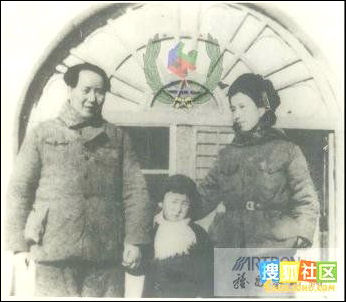
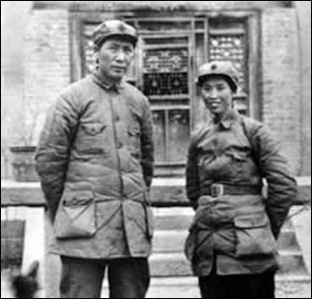
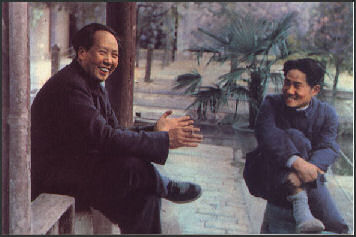
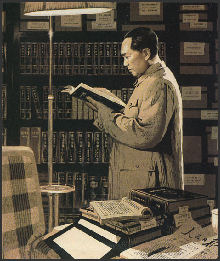
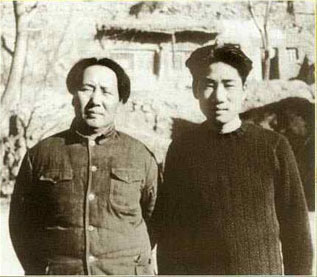
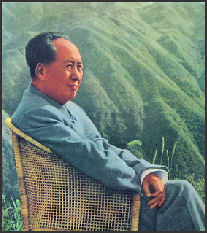
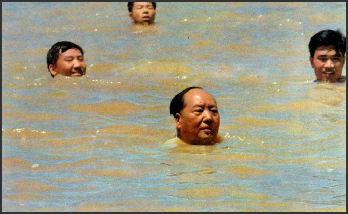
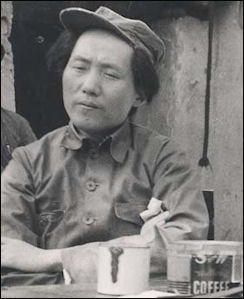
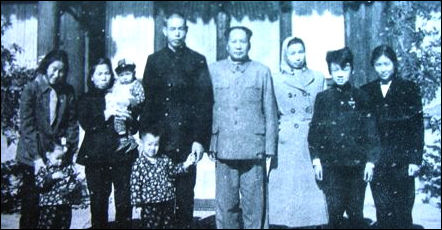
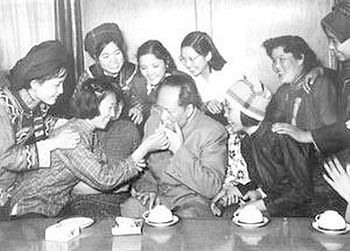
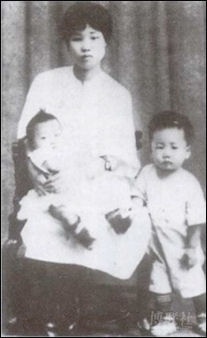


A man who could order all dogs in china killed is deranged:
“He that would hang his dog, gives out first that he is mad: a british proverb
the fallout from his so called cultural revolution is an undertone of violence that pervades china, where regular knife attacks on young school children occur with the same frequency as random shootings in the USA….
dont be silly.